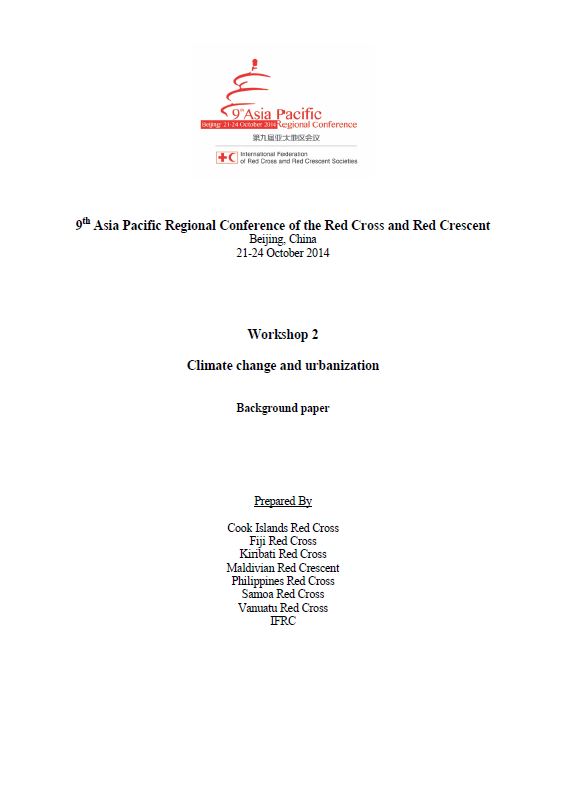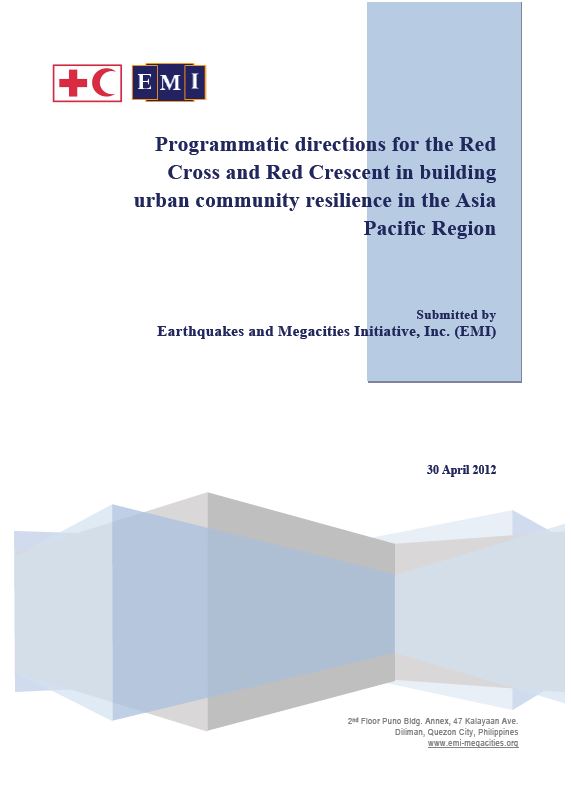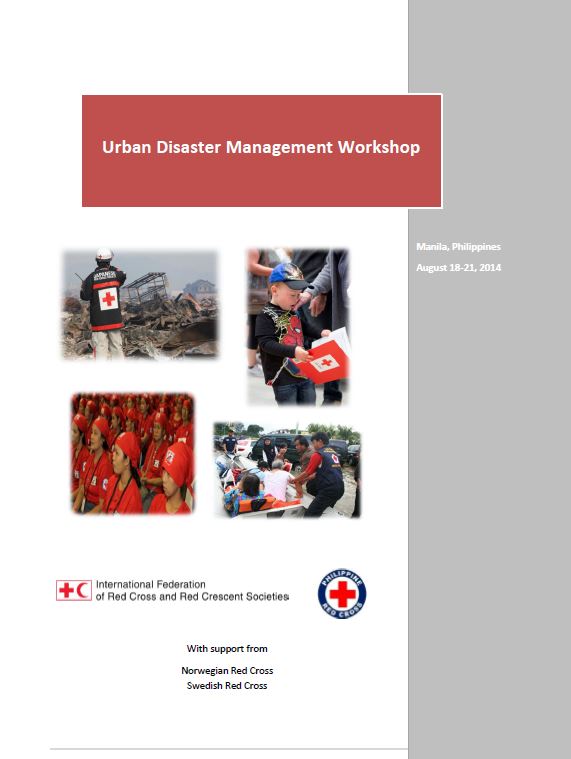The Urban Disaster Management workshop organized by Philippine Red Cross and IFRC, with the support of Norwegian Red Cross and Swedish Red Cross on 18-21 August 2014, in Manila, the Philippines, was a direct response to the many voices raised by National Societies to address urban Disaster Management issues with a progressive strategic and operational approach to urban preparedness, response and recovery.
The workshop brought together representatives from 15 National Societies from Asia-Pacific region, in addition to Partner National Societies, IFRC Secretariat, the ICRC, a range of representatives from Government authorities, UN, NGOs, academic and private institutions.
Objectives of the workshop:
- Increase knowledge on emerging urban Disaster Management issues & sharing of National Societies good practice.
- Provide directions for future strategic work – including a framework for the Asia Pacific zone on urban DRR and DM strategy.
- Identify needs and opportunities for innovative approaches to urban Disaster Management.
- Provide inputs to RCRC Asia Pacific statutory conference in Beijing, October 2014.
- Provide inputs to the IFRC Global Approach and Guidelines on Urban DRR/DM.
- Provide informed discussion on operational tools and services within the RCRC.
The various sessions throughout the workshop, including presentations, panels, group discussions and technical breakout sessions, discussed a range of various themes key to the urban environment, including, but not limited to:
- Contingency Planning in Urban contexts
- Urban Volunteer Management
- Cash Transfer Programming
- Urban Risk Assessment
- Disaster Law in urban contexts
- Violence in urban contexts
- Engaging with multiple stakeholders
- Environment and climate change
- Lessons learnt from the Haiyan response
Following the feedback and prioritized discussion topics of the Disaster Management Reference Group, the workshop was structured with the guiding questions, including:
- Where do we come from?
- Where do we want to go?
- How do we do it?
See also: Report of the workshop
![]()




